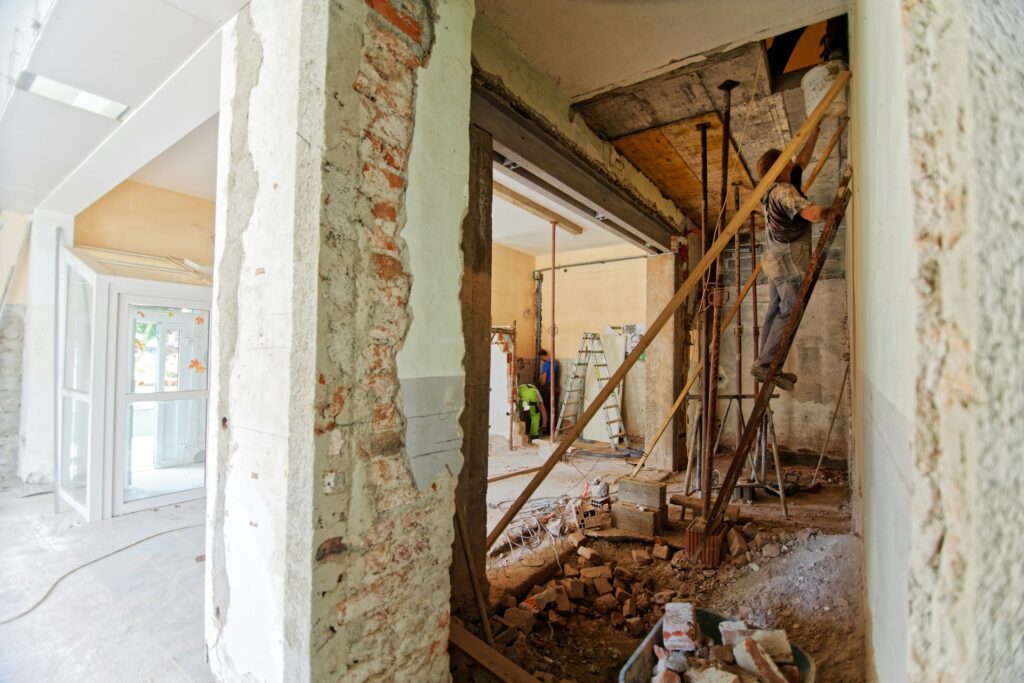
We are reader-supported. When you buy through links on our site, we may earn an affiliate commission.
Unlike other natural disasters, such as earthquakes and tornados, an overflow of water can happen anywhere. Heavy rainfall isn’t unique to one area of the world, so it’s important to stay ready – no matter where you live. Here are a few ways you can prepare your house for a flood.
Elevate Electrical Outlets
In many homes, sockets and switches aren’t positioned high enough. When water surges inside, these electrical systems can cause significant damage. Later on, they’re a safety hazard during the recovery process.
To keep your family safe, make sure to elevate these utility features. Determine the predicted flood level in relation to the 100-year floodplain, then go one foot further than that. Rewire your electrical systems so that they’re at this height in each room. As with any type of project where power is involved, it’s best to work with a knowledgeable contractor.
Clear Furniture and Debris
It’s wise to relocate unnecessary pieces of furniture if you live in a flood-prone area. Choose a storage unit that’s secured in a high location, or ask a friend to house your items if their home is out of the way. Invest in a waterproof safe for valuables, documents and other personal articles.
Look around your property for any debris, and move large pieces of wood and clear your gutters and drains. This rubble will make it harder for you to clean up your yard after the flood. You should also anchor equipment that may float away in the water.
Waterproof Your Basement
This process is typically for those who own homes close to floodplains, as it’s expensive and in-depth. However, a waterproofed basement can make all the difference when it rains. Locate problem areas and seal them. You may also need to add more downspouts to move water away from your home. You can find a number of solutions that work for your particular situation.
Install a water alarm once finished – this device will alert you when moisture accumulates in your basement.
Get Flood Insurance
Most homeowners’ insurance policies don’t include financial protection for floods. If you suspect that this coverage may benefit you, research plans in your area. Typically, they’ll cover damages up to a certain amount. This insurance probably isn’t useful for you unless you live near a body of water, so consider the likeliness of a flood before you make any decisions.
Compile an Emergency Kit
Every family should have an emergency kit on hand. In a flood, significant water levels impact roadways so that you won’t have access to everyday goods. Take the time to compile a set of necessary items – there should be enough to last at least three days. At the very minimum, you should include:
- Water
- Non-perishable food
- Toiletries
- A battery-operated radio
If you anticipate that a flood will happen soon, be sure to refill essential prescription medications beforehand. Remember that your materials should reflect the number of people in your house, and consider pet supplies as well. Even if you don’t use these provisions, they’ll be ready to go at all times.
Be Aware of the Weather
Above all else, make sure that you pay attention to the weather as much as possible. Keep track of alerts and updates on your phone so that when an emergency is underway, you can start to gather necessities and move to higher ground. If you think that a flood will happen in a few days, you’ll have a little more time to prepare and leave the area.
Remember to switch off your utilities before you seek better shelter. Head to your basement if possible and shut down every appliance – such as the water heater and electrical box. Of course, you never want to put yourself in danger. Prioritize your family and pets. Remember that if you don’t know what’s going on, you can’t make the right decisions. Tell everyone in your family to check the weather every so often. This way, you’re all aware of the situation.
Follow These Steps to Get Your House Ready for a Flood
Floods can happen anywhere to anyone, which is why you should know how to prepare for a flood. While this reality isn’t pleasant, it’s essential to recognize it so that you can prepare accordingly. Follow the advice above, from elevating outlets to staying aware of the weather, to make sure that your home can handle a flood.










